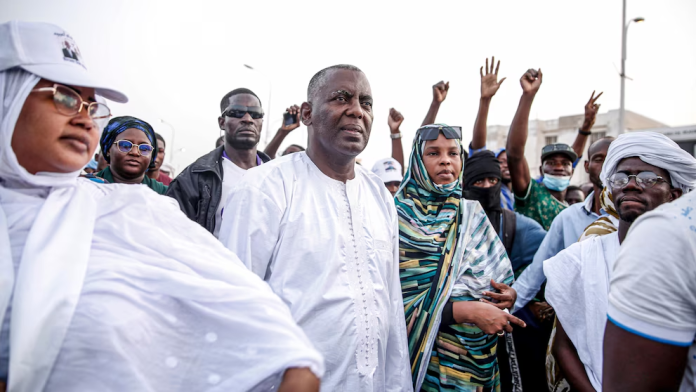Authorities stated that clashes in Mauritania between security forces and protesters opposing the re-election of President Mohamed Ould Ghazouani left three people dead and an unspecified number injured.
Kaedi last night saw violent acts of vandalism and sabotage of public and private property, scenes of looting and a general climate of fear which led the security forces to confront it and arrest several demonstrators.
Mobile internet access was blocked after Tuesday’s clashes as authorities vowed to arrest those behind the violence. Protests erupted late Monday night in parts of this northwest African country after Ghazouani had won the presidential election.
His main rival, Biram Dah Abeid, a prominent anti-slavery activist, rejected the vote and claimed the results were rigged. Security forces in the southern city of Kaedi confronted the demonstrators, the country’s Interior Ministry reported. However, authorities did not give the names of the three people killed in the violence, nor did they specify the circumstances of their deaths.
Protests also broke out in the towns of Nouadhibou, Rosso Zoueirat, and Boghe.
The prosecutor’s office will open an investigation to determine the circumstances of these events and the death of the demonstrators.
Ghazouani promised to bring security and economic growth to Mauritania. He won 56 per cent of the vote, whereas Abeid got 22 per cent, according to the electoral commission on Monday. Abeid called for “peaceful demonstrations and peaceful gatherings.”
The three international election observation missions also said in their preliminary statements on Monday that the voting took place in a “peaceful and transparent atmosphere.”
For centuries, Mauritania’s economic and political elite, made up of Arab and Amazigh people, enslaved Black people from the north-western Sahara. Mauritania outlawed slavery in 1981, becoming the last country in the world to do so.
However, the 2023 Global Slavery Index showed that the country, with a population of less than 5 million, held about 149,000 people in conditions of slavery.
